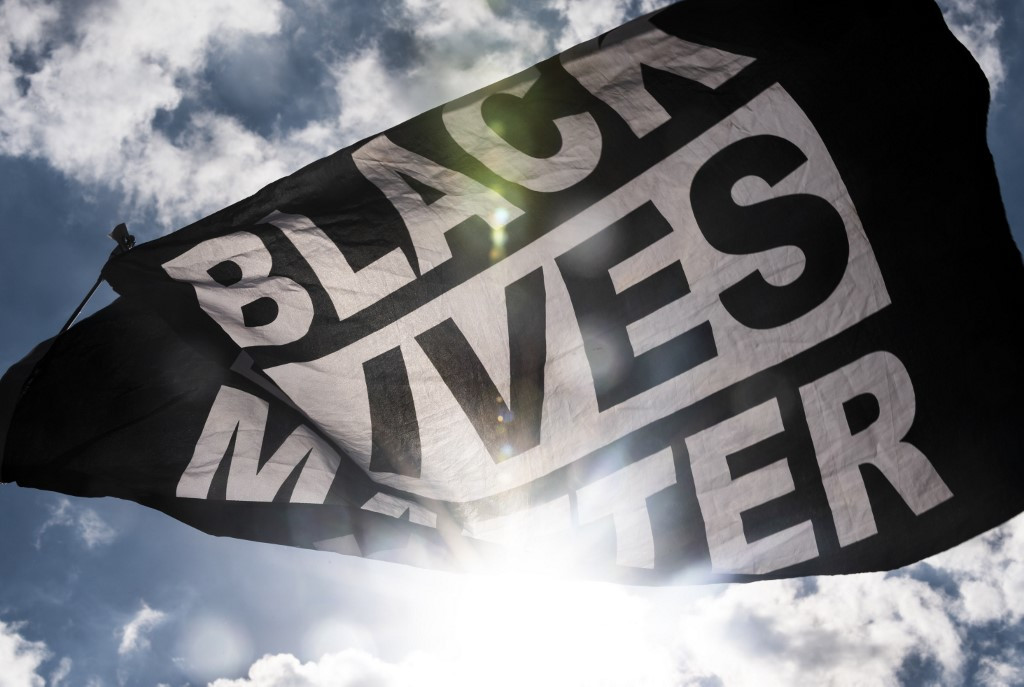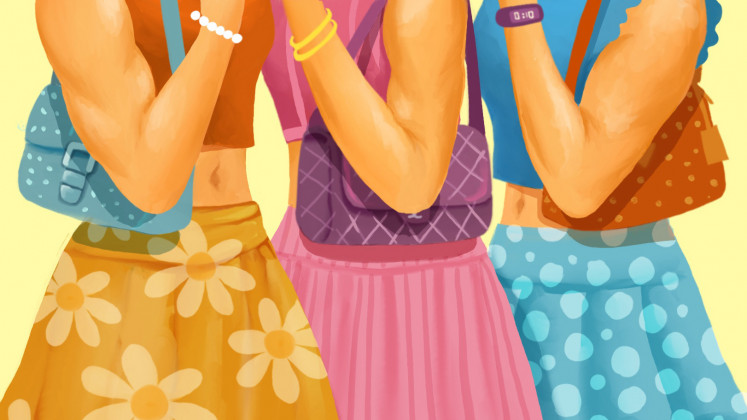Popular Reads
Top Results
Can't find what you're looking for?
View all search resultsPopular Reads
Top Results
Can't find what you're looking for?
View all search resultsHow Black Lives Matter is changing entertainment
Change text size
Gift Premium Articles
to Anyone
I
n the few short weeks since the death of George Floyd at the hands of US police, the reinvigorated Black Lives Matter movement has rocked the entertainment landscape.
We look at the some of the most dramatic changes it has sparked, from the temporary withdrawal of Gone With the Wind from HBO Max to a procession of performers apologizing for their depictions of black characters.
Apologies and removals
American television reality show, Cops, in which the cameras went on patrol with police, has been permanently pulled by the Paramount Network.
The show -- a small-screen institution which had been broadcast continuously since 1989 -- had been long criticized for glorifying macho policing and stirring fear of crime.
A swathe of cult comedy sketch shows have also been removed by some streamers and broadcasters. Little Britain was dropped by its makers the BBC as well as from Netflix, while two other British shows, The Mighty Boosh and The League of Gentlemen have also disappeared from the US streaming giant.
Four mockumentaries by the Australian comic actor Chris Lilley, of Summer Heights High fame, are also no longer available on the service, with speculation that it may be over his depiction of black, Tongan and Chinese characters.
Little Britain creators David Walliams and Matt Lucas had earlier admitted that they had regrets over the show.
"If I could go back and do Little Britain again, I wouldn't make those jokes about transvestites... and I wouldn't play black characters," Lucas said.
Another British comic, Leigh Francis apologized last week for caricaturing black stars in his Bo'Selecta show in 2002.
"I guess we're all on a learning journey," he said before Britain's Channel 4 pulled it from its streaming service.
Read also: US network pulls live police documentary show amid protests against racism
Spotlight on black stars
As well as quietly dropping some shows, Netflix and streaming rival Amazon are also promoting black talent.
Netflix created a special Black Lives Matter section this week of films and documentaries so viewers can "learn more about racial injustice and the Black experience in America".
"When we say 'Black Lives Matter,' we also mean 'Black storytelling matters,'" it tweeted.
When we say “Black Lives Matter,” we also mean “Black storytelling matters.”
With an understanding that our commitment to true, systemic change will take time – we're starting by highlighting powerful and complex narratives about the Black experience.
— Netflix (@netflix) June 10, 2020
The section includes documentaries, films and series from the Oscar-winning Moonlight to the campus-set series Dear White People.
Amazon Prime has its own section called "Black History, Hardship & Hope", with films including Just Mercy starring Michael B. Johnson and Jamie Foxx based on the true story of a black man appealing his murder conviction.
HBO Max meanwhile said they pulled Gone With the Wind -- one of US President Donald Trump's favorite films -- because of its "racist depictions" that were "wrong then and are wrong today".
But they plan to make it available again alongside a discussion putting it in its historical context.
Read also: Taylor Swift stresses importance of voting to fight police brutality, racism
Books and music
Books by black authors, or dealing with racial issues -- like sociologist Robin DiAngelo's White Fragility: Why It's So Hard for White People to Talk About Racism -- have also shot up the bestseller lists.
The Booker Prize-winning Girl, Woman, Other by British-Nigerian novelist Bernardine Evaristo is currently topping the British list, while Reni Eddo-Lodge's Why I'm No Longer Talking to White People About Race becoming the fastest selling non-fiction title at British bookshop chain Waterstones even though it was published three years ago.
The catch-all musical term "urban", which has been applied to rap, hip hop, R&B and other "black" genres, is also being questioned.
Republic Records, a Universal label that is home to the Canadian stars Drake and The Weeknd, was the first to stop using the word, with the Grammys following their lead by replaced its "urban music" awards section with "R&B progressive".











